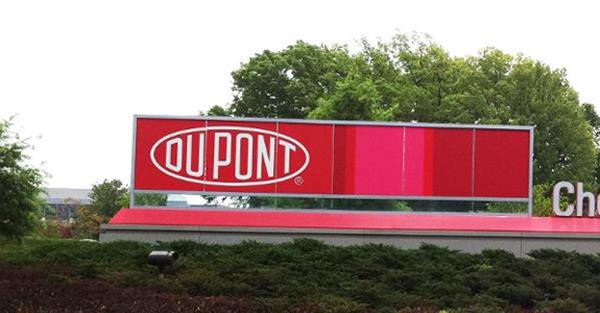|
Why some investors dread proxy
campaigns
by
Ronald Orol | Published
June 1, 2015 at 1:50 PM
Near the end of activist investor Nelson Peltz's
high-profile proxy battle at DuPont (DD), Standard & Poor's issued a
"negative rating outlook" for the chemical giant, largely due to its
dispute with the well-known insurgent.
Peltz ultimately failed in his efforts to get himself
or three other dissident nominees on the board of DuPont but that
didn't change the outlook for the debt, noted Paul Kurias, an analyst
at S&P, who pointed out that the activist plans to "wait and watch"
before deciding what to do with Trian Fund Management LP's $1.7
billion investment in DuPont.
A key reason for the negative outlook -- prospects that
the company could decide to split the business into two units after
Peltz urged it to break up. A split of the business, Kurias said,
could "erode" DuPont's strengths by weakening its "business diversity
and operating scale" all of which will lower its credit quality. "We
are still focused on whether the business is going to be split or not
by an activist or management," he added.
Over at Darden Restaurants Inc. (DRI), where activist
Starboard Value LP's CEO Jeff Smith was successful at replacing the
entire board, the company was actually hit with a downgrade. Shortly
after Starboard won the contest, Moody's Investors Service Inc.
downgraded Darden's debt to Ba1 from Baa3 -- meaning it went from
investment to speculative grade -- after it concluded that executing a
"sustained and profitable" turnaround at Olive Garden is "not likely"
in the "intermediate term" due to "unprecedented changes" in
leadership.
While the negative outlook doesn't pose much of a
problem for DuPont, which maintains its "A" rating, Darden's downgrade
could mean trouble for Smith's push to have the company separate its
real estate business through a merger or publicly traded REIT spinoff.
That effort, at the very least, is on hold. The insurgent's other
goal-a spinoff of Darden's specialty restaurants group and its
higher-end restaurant chains like The Capital Grille and Yard
House-also is unlikely to happen anytime soon, and at least, not until
its credit rating improves.
These two separate -- and very different -- companies
and campaigns underscore the downside activism for debt investors.
Equity holders are often thrilled to see an activist appear. Darden,
for instance, now trades in the mid-$60s, as compared to hovering in
the low $50s before Starboard showed up. For debt holders, though, the
appearance of a Peltz or Smith can cause agita.
The point was driven home by an April report from
Moody's with the catchy title, "Activist shareholders gain momentum in
2015, mainly negative for credit investors." Its main author, Chris
Plath, argues in the report that activism is "rarely" good news for
credit investors.
For one thing, activist wish lists often include things like share
buybacks or financial engineering strategies, such as REIT spinoffs,
sale-lease backs or splitting up the company itself. Credit raters
often view such moves as too risky.
In response to Peltz's presence, DuPont authorized a $5
billion share buyback -- a tactic often used to appease institutional
investors when a company is concerned about a proxy fight. That led
S&P to suggest that the authorized program and any future "shareholder
rewards" could "strain leverage or liquidity or both."
Columbia Law School professor John Coffee noted that
activists believe that corporate boards exist to represent
shareholders and no one else. He said that activists, particularly
those seeking to break up companies, will urge actions that reduce
debt ratings and result in cuts to research and development spending.
In addition, other corporate boards, hoping to avoid becoming the
target of activists the first place, are placing a greater emphasis on
buybacks and dividends.
"Creditors will say we are in a world where boards are
not on our side and they [bondholders] will demand a higher return
because they face more risk," Coffee said. "If you can make money for
shareholders but reduce the security for bond holders in the long term
that will result in lower debt ratings."
In addition, while an activist may like charts showing
how well the company's stock will do after a spinoff or breakup,
credit analysts may take an entirely different view of what will
happen if the company breaks apart.
"Analysts are perfectly entitled to take the view that
the joined up parts of the company create synergies that help maintain
the credit rating and that you would want to sit on a company set up
as a metaphorical three legged stool rather than a shooting stick,"
S&P analyst Laurence Hazell said.
To be fair, the news isn't all bad for credit holders
when an activist shows up. As Hazell added, "Let's not have an
automatic default setting that activism is credit negative."
He noted that activists have come a long way from their
"greenmail" days 20 or 30 years ago and that lately insurgent managers
often produce deep research on companies and develop ideas that are
"well worth looking at" by everyone including rating firms.
Consider a credit investor in a company that's in a
turnaround situation, with speculative rated debt. Such a debt holder
may be happy if the activist drives a sale of the business to one that
has a much better rating. In general, the acquirer will assume the
debt of the acquired company, which may result in a lower rating for
the buyer. Moody's in December placed Pantry Inc. (PTRY) -- which had
been the target of activist investors -- on review for an upgrade
after it agreed to be acquired by higher-rated Alimentation
Couche-Tard Inc. (Baa2 stable). Alternatively, creditors may suffer if
the sale is to a lower rated buyer.
Some activist campaigns also result in better-run
companies, and, therefore, better debt ratings. At Canadian Pacific
Railway Ltd. (CP), for instance, S&P upgraded the company to a BBB+ in
November. That followed Bill Ackman's Pershing Square Capital
Management LP taking over the railway giant's board in 2012 and
installing a new management team. S&P noted in its November report
that after "aggressive headcount reductions, several productivity and
efficiency measures and healthy revenue growth" Canadian Pacific met
its operating ratio goals. At the same time, the railroad's stock shot
up from about $73 a share in May 2012- when the board takeover took
place-to about $173 a share by May 2015.
"That appears to have worked out well from the company's point of
view," Hazell said.
And for some companies, like DuPont's and McDonald's
Corp.'s (MCD), investment grade ratings are almost assured.
McDonald's, which has been under pressure from activist Glenview
Capital Management LLC, last month accelerated its plan to return
between $8 billion and $9 billion to shareholders in 2015 through
dividends and stock buybacks. On May 15, Moody's downgraded its senior
unsecured noted to A3 from A2.
But Lynne Collier, analyst at Sterne Agee, said she
isn't concerned at all about Moody's move to slightly downgrade
McDonald's debt rating in response to the restaurant chain's major
turnaround strategy, which also involved refranchising 3500
company-owned locations.
"The stock hasn't been performing and it has been
trading in a narrow range between $90 and $100 and this move is a
modest positive," she said. "I think they are doing the right thing
from a financial engineering perspective. I'm more concerned about the
difficulty in turning around the operating performance."
Still, General Motors Co. (GM) settled with an activist
group including Harry J. Wilson, a former U.S. Treasury official who
served on President Barack Obama's auto industry task force, by
agreeing to a $5 billion share buyback program. Moody's described the
move as a "negative" credit development that will "delay any potential
consideration for an upgrade of its Baa3 credit facility rating
level." Some critics argue that the buybacks are overly short-term and
will take money away from ongoing projects, such as the auto giant's
capital-intensive process of rebuilding its auto lending unit.
And Gary Lutin, chairman of the Shareholder Forum,
noted that there have been several recent examples of activists
pushing large investment grade companies to drop either into or near
speculative grade ratings.
Walgreens Co., now Walgreens Boots Alliance Inc. (WBA),
found that its ratings for senior unsecured debt dropped to Baa2, two
notches above speculative grade, after insurgent Jana Partners LLC,
got involved, Lutin observed. The company, he noted, hiked its
dividend and launched a $3 billion share buyback, under pressure from
Jana, which contributed to the downgrade. The drug store company
maintained that Baa2 rating after it acquired the remaining 55% stake
in Alliance Boots it did not already own.
Both Darden and Walgreens have recently undergone major
strategic transformations, Lutin added, which itself adds enterprise
risk. He said the downgrade could hurt Walgreens Boots Alliance if
there is a negative economic development at the same time that it also
makes it more difficult for the chain to buy a major strategic
business or expand into new markets.
"It doesn't make sense for a large company, which can
need a lot of capital to survive a transition, just when financial
markets are at their worst, to drop its capital structure below
investment grade," he said.
Jana Partners founder Barry Rosenstein said the fund's
investment in Walgreen's will be a "core position" for a long time.
"The [Walgreen's] board has turned over, the management has turned
over, expenses are coming out and this has become a change for the
better. We're looking at strategic alternatives," he told fund
managers at a conference in Las Vegas earlier this month.
Smaller companies targeted by activists have even more
issues with speculative grade ratings.
Emulsion polymer maker Omnova Solutions Inc. (OMN),
which has a $368 million market capitalization, reached an agreement
with activist Barington Capital Group LP in February to expand its
board and add two dissident directors including the fund's founder,
James Mitarotonda. Moody's quickly issued a note saying that "event
risk remains heightened" at Omnova, which has a B1 rating, after it
struck the deal with Barington. "We view doing the stock buybacks
urged by Barington as credit negative," said Moody's analyst Ben
Nelson. "Barington also wanted them to divest their Engineered
Surfaces business and we think that would be credit negative also."
Nelson also noted that Omnova already has a lower
credit rating so a downgrade would have a much bigger negative impact
for creditors there than at higher rated companies.
"Some of the companies at the lower end of the rating
scale have less resilience and it will be much harder for them to
improve their ratings," he said.
Hazell agreed that smaller companies like Omnova "sit
on a narrower ledge" when it comes to their ratings. "You would expect
that if there are financial events that take place at companies with
speculative grade ratings that the company has less fat to trim going
forward," he said.
Nevertheless, Shareholder Forum's Lutin suggested that many
institutional investors are eager to hear what credit raters have to
say, adding that long-term shareholders often have a lot more in
common with long-term bondholders than they have with a short-term
activist.
"Both types of long term investors want to see sound
enterprise growth over a 10- to 20-year time frame," Lutin said.
For bondholders, then, the trick may be not who the
activist is, but what the activist wants.
| ©Copyright 2015, The
Deal. |
|





